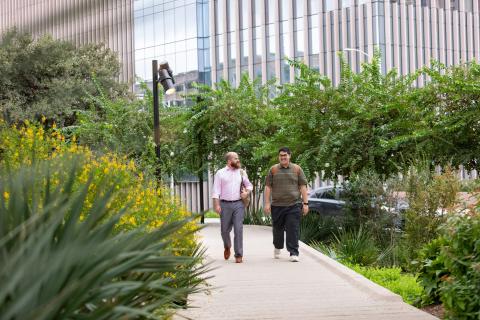
Finding and cultivating a network of mentors and peers is key to success in graduate school and beyond. The professional community you build during your time in graduate school can provide valuable guidance, connections and support as you develop your research and your career.
The resources below can help you cultivate relationships to advance your academic, personal and career goals. You’ll also learn to recognize and value the unique perspectives of people and points of view in an effort to address and eliminate barriers to systems and services.
Key skills for building a community include:
Understand the importance of identifying a mentor
Acquire tools for establishing a supportive mentoring relationship
Learn strategies for identifying multiple mentors for academic and career development
Develop the competency to mentor others
Cultivate self-advocacy skills
Enhance communication, conflict management, and boundary setting skills
Enhance communication, conflict management, and boundary setting skills
Incorporate self-assessment strategies for growth
Build mentoring networks
Mentoring Course
Enroll in the Graduate Student Mentoring Course
This course in Canvas includes modules covering numerous aspects of the graduate student experience, as well as testimonials from students and links to helpful resources.
Faculty Graduate Student Mentoring Course
This Canvas course includes resources for faculty members, graduate students and graduate programs. It provides information on mentoring, a list of recommended best practices and suggestions to help faculty begin meaningful and productive conversations about mentoring.
Individualized Consultations
Ombuds Office for Graduate Students and Postdocs
The Ombuds offices can help, whether it’s listening, directing you to the appropriate university office, identifying your options, or coaching you to prepare for a difficult conversation. UT has separate Ombuds offices dedicated to students, staff, and faculty.
Career Advising
Office of Career & Life Design Advisors can help you build an individual development plan to share with your advisor, and discuss key communication strategies when working with your advisor on career topics.
Communities
Graduate Student Communities
Access resources for first-generation students, international students and students with dependents.

